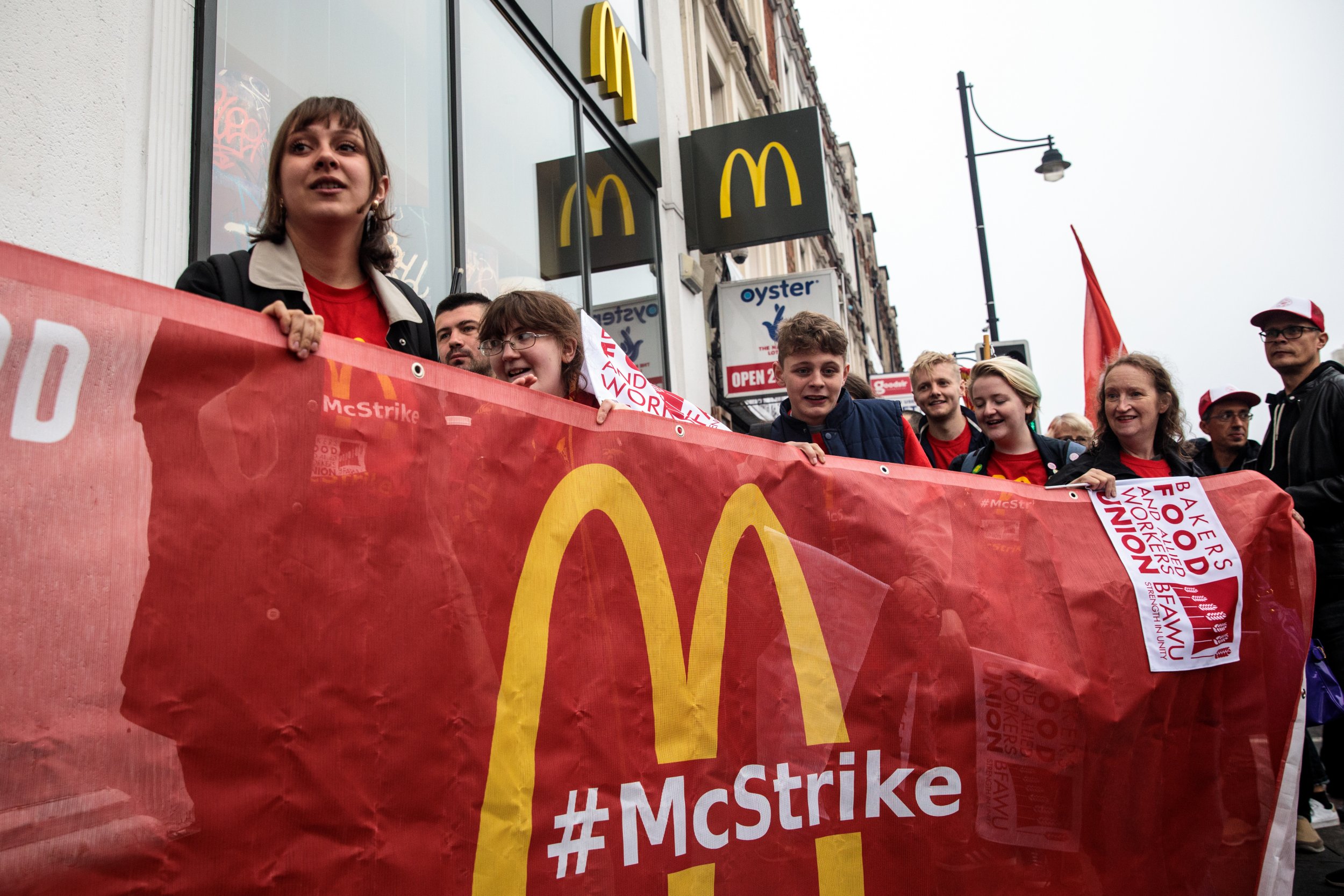
A new rule proposed by the Trump administration in an attempt to weaken the power of labor unions could cost American workers $1.3 billion in lost wages annually, a new study by the Economic Policy Institute has found.
The rule proposal would limit the joint employment standard under the National Labor Relations Act.
Currently, two or more companies are "joint employers" of an employee if they share the ability to govern that employee's salary and working conditions. Even if a company has the right to govern an employee's working conditions but opts not to, it can be held responsible for labor violations.
The rule change would limit that. A company would only be held responsible if it "possesses and exercises substantial, direct and immediate control over the essential terms and conditions of employment and has done so in a manner that is not limited and routine."
The changes would leave certain employees without the ability to hold their employers accountable for violating safety and fair pay laws. The rule change would also make it nearly impossible for unionized workers or workers who want to unionize to collectively bargain with all of their employers.
The original rule was created partially because employers would seek out temporary or contract labor in order to prevent employees from unionizing. The joint employment rule made it possible for employees to enter into collective bargaining agreements with the employer who controlled the terms of their employment, even if they were considered temporary workers.
There are currently about 2.3 million employees in the U.S. who work as contractors or through temporary employment agencies. When two business entities share or control an employee's activities, they're considered joint employers. If employees of a specific restaurant franchisee, for example, are underpaid or asked to work excessive hours, they may be able to file a complaint against the parent corporation. McDonald's is currently tied up in a legal battle over whether it should share responsibilities for violating labor laws with its franchisees because of the power it exerts over them.
About 170,000, or about 7.5 percent, of employees working for two or more employers are currently members of a union or are covered by a union contract, according to the Economic Policy Institute. The rule change would make it nearly impossible for those employees to engage in collective bargaining, and could collectively cost them up to $1.3 billion each year, Economic Policy Institute Director of Policy Heidi Shierholz and Director of Government Affairs Celine McNicholas found.
"The impact of the Board's proposed rule on joint employers will be significant for the wages of working people and their right to collectively bargain," said McNicholas.
The American Federation of Labor and Congress of Industrial Organizations, the AFL-CIO, meanwhile, has accused the National Labor Relations Board of allowing business groups to have "secret extensive input" into the rule change. In a December 7 filing, the AFL-CIO said that business representatives submitted rulemaking petitions that led to the development of the proposal. The National Labor Relations Board said the AFL-CIO, did not disclose this.
"The joint-employer standard should ensure that all businesses that share control over a worker's pay, hours and safety, have some responsibility to that worker under the law," said Shierholz. "Instead, large corporations would benefit from this rule because it creates a loophole that would allow them to shirk their responsibilities under our nation's labor law, while workers would lose billions."
Uncommon Knowledge
Newsweek is committed to challenging conventional wisdom and finding connections in the search for common ground.
Newsweek is committed to challenging conventional wisdom and finding connections in the search for common ground.
About the writer
Nicole Goodkind is a political reporter with a focus on Congress. She previously worked as a reporter for Yahoo Finance, ... Read more
To read how Newsweek uses AI as a newsroom tool, Click here.








